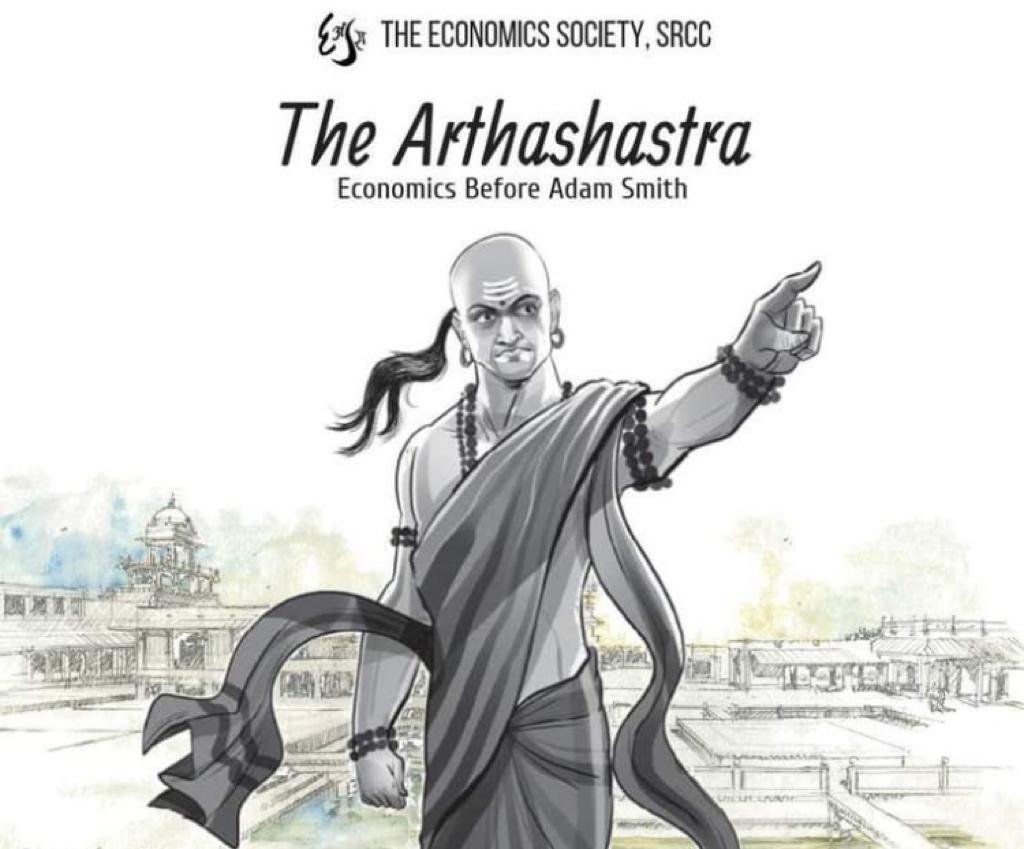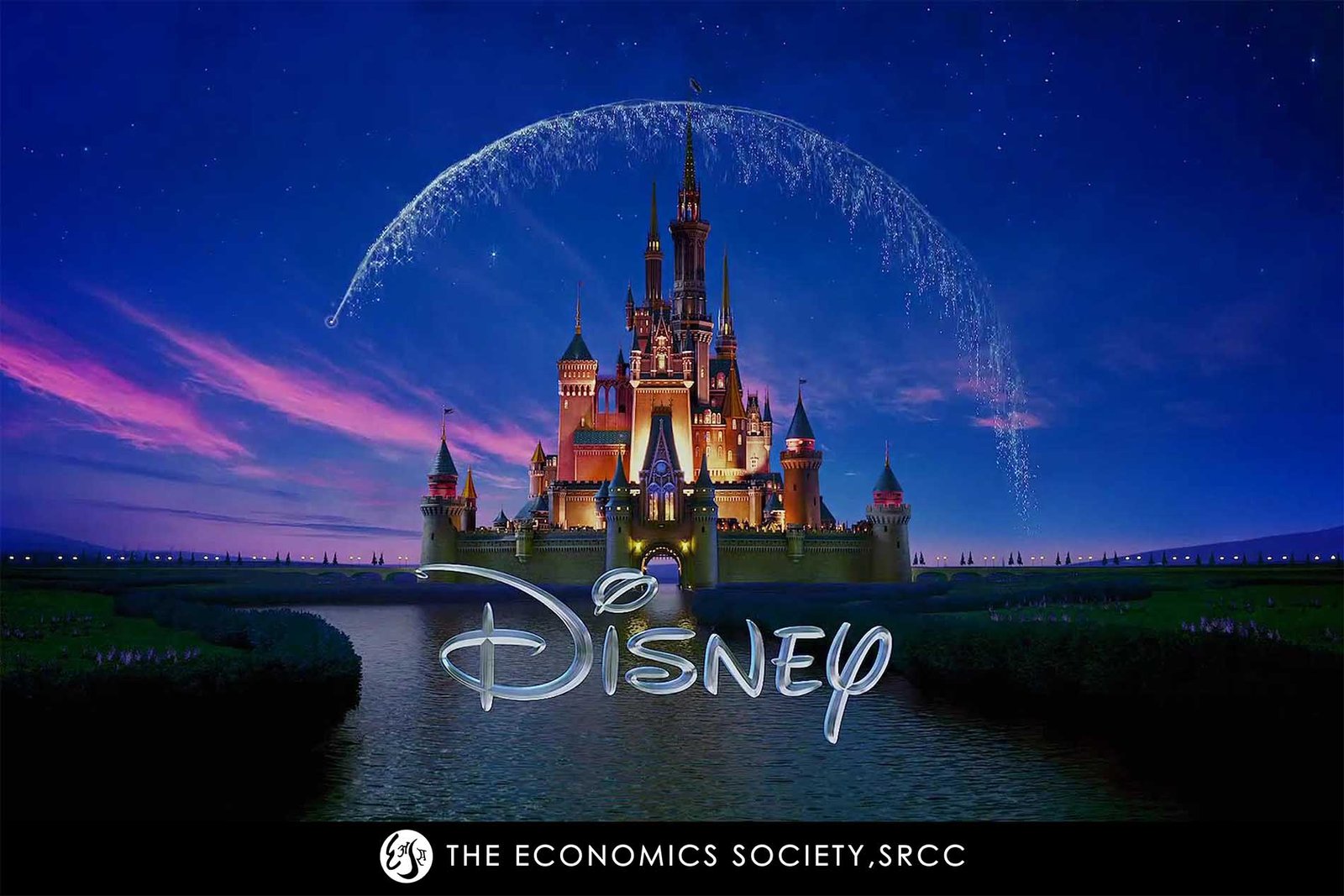
Published in:
Business And Finance
Bottom Line: The Historical Evolution Of The Corporate Overlord

The year was 1600. In a disintegrating building in north London, a varied group of people- merchants and mayors, grocers and soldiers, the ambitious and the desperate- gathered to form the East India Company (EIC). Over the next few centuries, this corporation would transition from an innocuous trading concern into the de facto ruler of over 200 million people in the Indian subcontinent and elsewhere.
The Company’s rise to power was bloody, to say the least. Its Charter provided for a standing army and permitted it to ‘wage war,’ and so it did, carrying out a campaign of brutality, mass murder, and plunder that made India’s contribution to global GDP plummet from a high of 27% to 3% by the time the British left. Military victories like that at the Battle of Plassey in 1757 helped establish EIC control over rich provinces such as Bengal, which were then ruthlessly minted for money through exorbitant taxation. Rulers who resisted British control were deposed and loyal figureheads installed in their place.
Simultaneously, the thriving textile businesses were replaced by British manufacturers; Indian industry was demolished while the Company instituted a complete monopoly on trade. The golden bird, i.e. India, was thus left barren, all for the benefit of Englishmen intent on ‘drawing up riches from the banks of the Ganges, and squeezing them down upon the banks of the Thames.’
The Company certainly set the benchmark for corporate violence and abuse of power. Its histrionics, however, haven’t been relegated to the annals of history. Instead, they have been replicated- in less barbaric iterations no doubt-but replicated nonetheless, by subsequent corporations.
In the words of historian William Dalrymple, the East India Company ‘invented corporate lobbying.’ It used the massive revenues generated off of trade in Asia to bribe parliamentarians and royalty alike, as well as buy seats in Parliament for its employees. This allowed the Company to, among other things, use British Navy vessels to safeguard itself against the French and secure a mega-bailout from the government when it ran into financial troubles.
More than a century later, the United Fruit Company made bananas a prevalent food in the USA through its operations in Guatemala, Honduras and other ‘Banana Republics.’ It held substantial sway over the political and economic matters of these countries: in Guatemala, for instance, United Fruit owned 42 percent of the land, set up sycophantic dictatorships, controlled the railway and telecom sectors, and monopolized the banana exports. Sound familiar?
When a new left leaning head of state- Arbenz- threatened to disrupt this corporatocracy with his land redistribution programme, United Fruit, following in the footsteps of the East India Company, used its influence over the US government (then Secretary of State Dulles’ law firm represented the corporation and his family owned its shares) to push for a CIA-backed coup to remove the problematic leader from power.
Lobbying governments to implement regime change in foreign countries isn’t a tactic limited to United Fruit, though. The Anglo-Persian Oil Company did the same in Iran in 1953, as did the International Telephone and Telegraph Corporation in Chile in the 1970s. In both cases, the people’s wishes, the principles of democracy, and the sovereignty of a nation state were all disregarded in favour of a far more primitive goal- profit maximisation.
More recently, however, the East India Company’s propensity for political interference has been mirrored by firms such as Facebook. The social media giant’s ownership of platforms such as WhatsApp and Instagram has allowed it to access, condense and collate unprecedented amounts of data. The manipulation and targeted usage of this data allowed it, and allows it still, to wage a war of its own. There may be no standing army in this case, but likes, clicks, and shares are weapons enough for Facebook, weapons that can, among other things, determine the government of any region. This was evident in the Cambridge Analytica scandal of 2018, wherein it was discovered how data mining helped create a successful online campaign for presidential candidate Donald Trump in the 2016 elections. Harvard Law scholar, Jonathan Zittrain suggests the same in his essay, ‘‘Facebook could decide an election without anyone ever finding out,’’ wherein he argues how subtle maneuvering with clickbait and ad gimmicks could, hypothetically, swing the outcome of an election in favour of a particular candidate.
The aforementioned examples are a few of many that showcase how ‘big business’ has driven world affairs. But corporates’ authority has not merely been a product of the violence they have instigated and the corruption they have promulgated. It has also been artfully cultivated through soft power, through cultural stimulus and subtle misrepresentations, aided by an often pliant press.
The East India Company and its proponents masked its atrocities under the pretext that the colonial enterprise helped ‘civilise’ the heathens of India through the import of British arts, culture and industrialised practices. A conscious effort was made to educate Indians in the Western tradition to make them more amenable to, and appreciative of, Company rule. A variant of this pseudo-apologism has survived well into the 20thand 21stcentury: Arundhati Roy comments in her essay ‘Capitalism: A Ghost Story’ how large corporations have increasingly used their philanthropic foundations for ‘perception management.’ She argues how, whether it is the Fords and Rockefellers or, closer to home, the Ambanis and Tatas, big business has utilised their quasi-charitable organisations to subvert the public narrative regarding their actions. The examples are many and wide-ranging: a company that is profiteering off illegal mining organises a filmmaking competition on sustainable development; a firm advocating cuts in public welfare schemes finances free healthcare for the poor; a multinational corporation benevolently offers scholarships to children from ‘Third World’ countries to study neo-liberal economics abroad, and reaps the benefits when these same children come back home, replete with the desired ideology, and lead their countries to trade liberalisation; firms suffering the aftermath of a telecom scandal finance an anti-corruption crusader against the government to divert attention from their own wrongdoings. Simply put, these corporations’ version of doing good is just another opportunity to serve the long-term agenda of enhancing their balance sheets: a way to conceal the blood on their hands, if you will.
Baron Thurlow remarked that “Corporations have neither bodies to be punished, nor souls to be condemned. They, therefore, do as they like.’’ Business’ non-accountability means that they have little to no moral scruples: they have an utter disregard for human life in their drive to make more money. In the Company’s case, this meant squeezing taxes out of the Bengalis, even when famine threatened mass starvation. Similarly, Iran in recent decades has seen more and more oil being exported under the regulation of foreign corporations while the majority of the Iranian population cannot fulfill their basic needs.
It has now been more than 400 years since the East India Company was created. Yet today we ask ourselves the same questions that the members of the British Parliament asked themselves in 1787 when considering Warren Hastings’ impeachment on corruption and misdemeanor charges while in service of the Company. Can corporations be regulated, considering that upwards of $2 billion are spent by corporate lobbyists in the US alone and that most of Narendra Modi’s campaign funds for the 2014 Lok Sabha elections came from unnamed corporate donors? Should corporations be regulated, considering that, whatever their motives, the funds disbursed by the Bill Gates and Reliance foundations, among others, have bettered hundreds of thousands of lives? If yes, to what extent? If not, what is the alternative? This debate is not a simplistic one. The channels of corporate influence are too convoluted to navigate but we must navigate them.
Maybe the answer lies in protest movements such as Occupy Wall Street, in taking the onus, as the 99%, to hold the 1% to account for the inequality and injustice they have propagated. Or maybe the answer lies in recognising the deadly power that these businesses hold, but also the inevitability of their existence.
Either way, the bottom line is, we must beware of the bottom line.
By Mihika Jain
The Company’s rise to power was bloody, to say the least. Its Charter provided for a standing army and permitted it to ‘wage war,’ and so it did, carrying out a campaign of brutality, mass murder, and plunder that made India’s contribution to global GDP plummet from a high of 27% to 3% by the time the British left. Military victories like that at the Battle of Plassey in 1757 helped establish EIC control over rich provinces such as Bengal, which were then ruthlessly minted for money through exorbitant taxation. Rulers who resisted British control were deposed and loyal figureheads installed in their place.
Simultaneously, the thriving textile businesses were replaced by British manufacturers; Indian industry was demolished while the Company instituted a complete monopoly on trade. The golden bird, i.e. India, was thus left barren, all for the benefit of Englishmen intent on ‘drawing up riches from the banks of the Ganges, and squeezing them down upon the banks of the Thames.’
The Company certainly set the benchmark for corporate violence and abuse of power. Its histrionics, however, haven’t been relegated to the annals of history. Instead, they have been replicated- in less barbaric iterations no doubt-but replicated nonetheless, by subsequent corporations.
In the words of historian William Dalrymple, the East India Company ‘invented corporate lobbying.’ It used the massive revenues generated off of trade in Asia to bribe parliamentarians and royalty alike, as well as buy seats in Parliament for its employees. This allowed the Company to, among other things, use British Navy vessels to safeguard itself against the French and secure a mega-bailout from the government when it ran into financial troubles.
More than a century later, the United Fruit Company made bananas a prevalent food in the USA through its operations in Guatemala, Honduras and other ‘Banana Republics.’ It held substantial sway over the political and economic matters of these countries: in Guatemala, for instance, United Fruit owned 42 percent of the land, set up sycophantic dictatorships, controlled the railway and telecom sectors, and monopolized the banana exports. Sound familiar?
When a new left leaning head of state- Arbenz- threatened to disrupt this corporatocracy with his land redistribution programme, United Fruit, following in the footsteps of the East India Company, used its influence over the US government (then Secretary of State Dulles’ law firm represented the corporation and his family owned its shares) to push for a CIA-backed coup to remove the problematic leader from power.
Lobbying governments to implement regime change in foreign countries isn’t a tactic limited to United Fruit, though. The Anglo-Persian Oil Company did the same in Iran in 1953, as did the International Telephone and Telegraph Corporation in Chile in the 1970s. In both cases, the people’s wishes, the principles of democracy, and the sovereignty of a nation state were all disregarded in favour of a far more primitive goal- profit maximisation.
More recently, however, the East India Company’s propensity for political interference has been mirrored by firms such as Facebook. The social media giant’s ownership of platforms such as WhatsApp and Instagram has allowed it to access, condense and collate unprecedented amounts of data. The manipulation and targeted usage of this data allowed it, and allows it still, to wage a war of its own. There may be no standing army in this case, but likes, clicks, and shares are weapons enough for Facebook, weapons that can, among other things, determine the government of any region. This was evident in the Cambridge Analytica scandal of 2018, wherein it was discovered how data mining helped create a successful online campaign for presidential candidate Donald Trump in the 2016 elections. Harvard Law scholar, Jonathan Zittrain suggests the same in his essay, ‘‘Facebook could decide an election without anyone ever finding out,’’ wherein he argues how subtle maneuvering with clickbait and ad gimmicks could, hypothetically, swing the outcome of an election in favour of a particular candidate.
The aforementioned examples are a few of many that showcase how ‘big business’ has driven world affairs. But corporates’ authority has not merely been a product of the violence they have instigated and the corruption they have promulgated. It has also been artfully cultivated through soft power, through cultural stimulus and subtle misrepresentations, aided by an often pliant press.
The East India Company and its proponents masked its atrocities under the pretext that the colonial enterprise helped ‘civilise’ the heathens of India through the import of British arts, culture and industrialised practices. A conscious effort was made to educate Indians in the Western tradition to make them more amenable to, and appreciative of, Company rule. A variant of this pseudo-apologism has survived well into the 20thand 21stcentury: Arundhati Roy comments in her essay ‘Capitalism: A Ghost Story’ how large corporations have increasingly used their philanthropic foundations for ‘perception management.’ She argues how, whether it is the Fords and Rockefellers or, closer to home, the Ambanis and Tatas, big business has utilised their quasi-charitable organisations to subvert the public narrative regarding their actions. The examples are many and wide-ranging: a company that is profiteering off illegal mining organises a filmmaking competition on sustainable development; a firm advocating cuts in public welfare schemes finances free healthcare for the poor; a multinational corporation benevolently offers scholarships to children from ‘Third World’ countries to study neo-liberal economics abroad, and reaps the benefits when these same children come back home, replete with the desired ideology, and lead their countries to trade liberalisation; firms suffering the aftermath of a telecom scandal finance an anti-corruption crusader against the government to divert attention from their own wrongdoings. Simply put, these corporations’ version of doing good is just another opportunity to serve the long-term agenda of enhancing their balance sheets: a way to conceal the blood on their hands, if you will.
Baron Thurlow remarked that “Corporations have neither bodies to be punished, nor souls to be condemned. They, therefore, do as they like.’’ Business’ non-accountability means that they have little to no moral scruples: they have an utter disregard for human life in their drive to make more money. In the Company’s case, this meant squeezing taxes out of the Bengalis, even when famine threatened mass starvation. Similarly, Iran in recent decades has seen more and more oil being exported under the regulation of foreign corporations while the majority of the Iranian population cannot fulfill their basic needs.
It has now been more than 400 years since the East India Company was created. Yet today we ask ourselves the same questions that the members of the British Parliament asked themselves in 1787 when considering Warren Hastings’ impeachment on corruption and misdemeanor charges while in service of the Company. Can corporations be regulated, considering that upwards of $2 billion are spent by corporate lobbyists in the US alone and that most of Narendra Modi’s campaign funds for the 2014 Lok Sabha elections came from unnamed corporate donors? Should corporations be regulated, considering that, whatever their motives, the funds disbursed by the Bill Gates and Reliance foundations, among others, have bettered hundreds of thousands of lives? If yes, to what extent? If not, what is the alternative? This debate is not a simplistic one. The channels of corporate influence are too convoluted to navigate but we must navigate them.
Maybe the answer lies in protest movements such as Occupy Wall Street, in taking the onus, as the 99%, to hold the 1% to account for the inequality and injustice they have propagated. Or maybe the answer lies in recognising the deadly power that these businesses hold, but also the inevitability of their existence.
Either way, the bottom line is, we must beware of the bottom line.
By Mihika Jain


